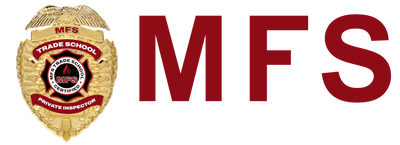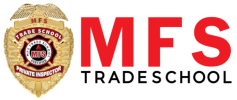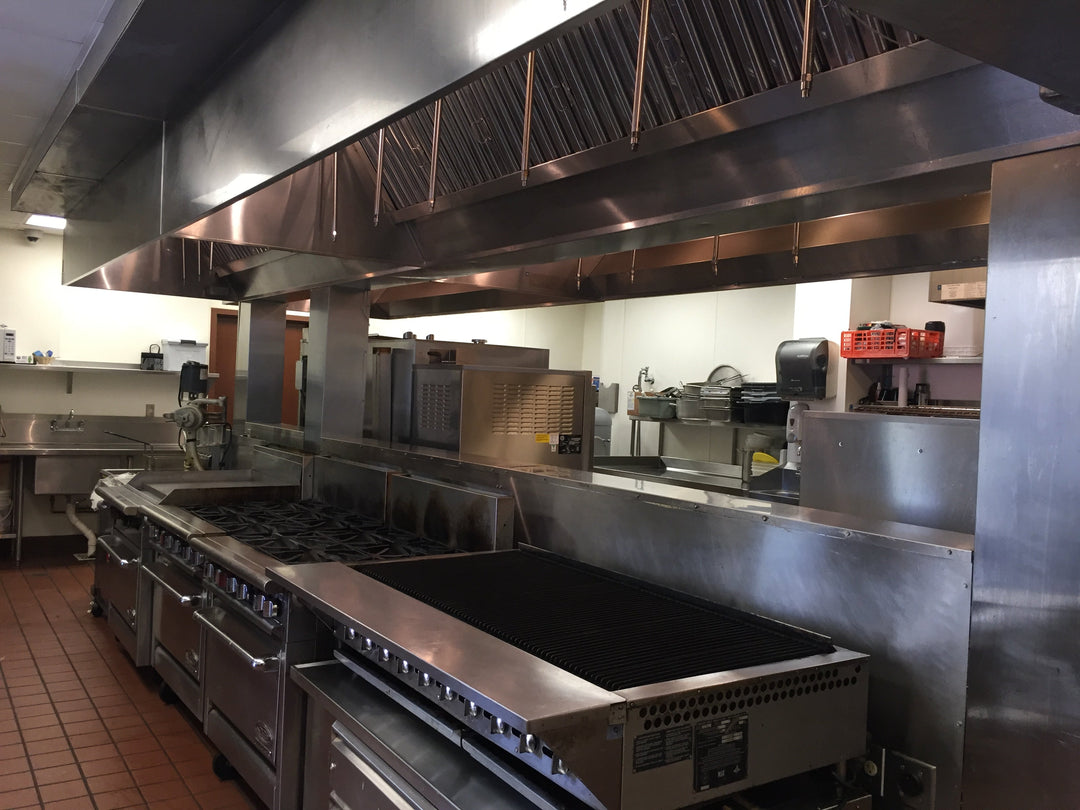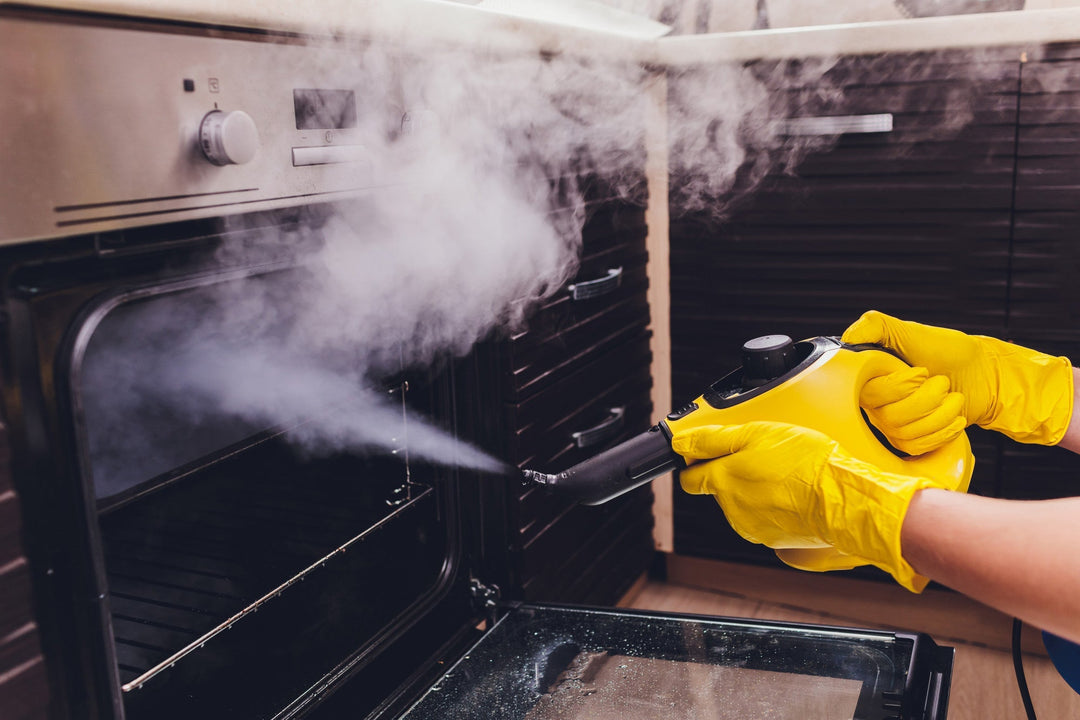Commercial Kitchen Hood Cleaning Certification Bodies and Industry Standards
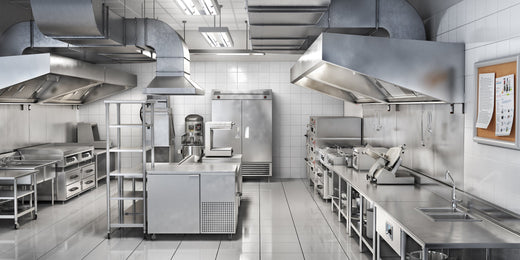
Key Industry Standards for Kitchen Hood Cleaning
Ensuring the safety and cleanliness of commercial kitchens is a top priority for restaurant owners and operators. Regular cleaning and maintenance of kitchen exhaust systems play a crucial role in preventing fires, maintaining air quality, and complying with local regulations.
Several industry standards and certification bodies have been established to provide guidelines and best practices for commercial kitchen hood cleaning. By adhering to these standards and working with certified professionals, restaurant owners can ensure their kitchens are safe, efficient, and up to code. Programs like our hands-on exhaust cleaning coaching program can help professionals meet these standards.

What are the Key Industry Standards for Kitchen Hood Cleaning?
The National Fire Protection Association (NFPA) and the International Kitchen Exhaust Cleaning Association (IKECA) are the two primary organizations that set standards for commercial kitchen hood cleaning.
The NFPA 96 Standard, titled "Standard for Ventilation Control and Fire Protection of Commercial Cooking Operations," outlines fire safety requirements for commercial kitchen exhaust systems. This comprehensive standard covers the design, installation, operation, inspection, and maintenance of these systems. NFPA 96 is widely recognized and adopted by local authorities, making compliance essential for restaurant owners.
IKECA, on the other hand, focuses specifically on developing ANSI standards for the cleaning, inspection, and maintenance of kitchen exhaust systems. These standards provide detailed guidance on best practices and procedures for ensuring the cleanliness and safety of commercial kitchen hoods.
-
ANSI/IKECA C10: This standard defines acceptable methods for cleaning exhaust systems and sets post-cleaning cleanliness levels. It covers the entire exhaust system, including hoods, filters, ducts, and fans, and emphasizes the removal of flammable contaminants like grease and oily sludge.
-
ANSI/IKECA I10: This standard provides requirements for inspecting exhaust systems to assess their mechanical condition, structural integrity, fire safety, and overall cleanliness. Regular inspections help identify potential issues and ensure the system is functioning properly.
Adhering to these industry standards is crucial for maintaining a safe and compliant commercial kitchen. Restaurant owners should work with service providers who are knowledgeable about and compliant with NFPA 96 and IKECA standards to ensure their exhaust systems are cleaned and maintained according to the highest standards, such as those emphasized in training programs like MFS Trade School.
What are the Cleaning Frequency Requirements in NFPA 96?
NFPA 96 prescribes specific cleaning intervals to ensure the safe operation of commercial kitchen exhaust systems. These intervals consider the intensity and type of cooking activities, as different setups produce varying levels of grease and other flammable residues. Following these schedules is essential for minimizing fire risks and maintaining compliance with safety standards.
Monthly Cleaning
Systems utilizing solid fuel cooking methods require cleaning every month. Solid fuels, like wood and charcoal, generate considerable amounts of soot and grease-laden vapors, leading to rapid buildup in exhaust systems. Monthly maintenance is crucial to prevent these deposits from reaching hazardous levels, thus reducing fire risks and ensuring optimal system efficiency.
Quarterly and Semi-Annual Cleaning
For high-volume cooking operations, such as those in 24-hour restaurants or settings with frequent use of charbroiling and woks, quarterly cleaning is necessary. These environments experience significant grease accumulation due to their continuous cooking activities. Regular quarterly maintenance prevents excessive buildup, ensuring safety and adherence to NFPA 96.
Moderate-volume operations, which may not run around the clock but still see consistent use, require semi-annual cleaning. By scheduling maintenance twice a year, these establishments can manage grease levels effectively, maintaining a safe kitchen environment and minimizing fire hazards.
Annual Cleaning
Low-volume operations, like those in churches, seasonal establishments, or senior centers, typically need annual cleaning. While these kitchens may see less frequent use, they are still susceptible to grease accumulation over time. An annual cleaning schedule is sufficient to clear out any buildup, keeping the exhaust systems safe and operational.
What Does an NFPA 96 Compliant Cleaning Entail?
Adhering to NFPA 96 compliance mandates a detailed approach to maintaining commercial kitchen exhaust systems. This involves a rigorous cleaning protocol encompassing all components to uphold safety and functionality. Each element, from the hood to the ducts, must be addressed to effectively eliminate potential risks.
Comprehensive System Maintenance
The cleaning regimen must include every part of the exhaust infrastructure—covering areas like hoods, filters, ducts, and fans. These components can harbor residues that, if left unchecked, pose substantial fire hazards. Ensuring thorough cleanliness across the system is essential for maintaining a safe kitchen environment.
-
Hood and Filters: Hoods and filters act as primary barriers against grease accumulation. Regular maintenance prevents the buildup of flammable materials that could ignite under high temperatures. Filters should be maintained or replaced as needed to preserve effective airflow and system efficiency.
-
Ducts and Fans: Special attention is required for ducts and fans due to their role in ventilating smoke and vapors. Regular inspection and cleaning are imperative to prevent grease-related blockages and ensure proper ventilation.
Expertise and Professional Standards
Engaging trained and certified professionals for cleaning is crucial as per NFPA 96 guidelines. These experts bring the necessary skills and knowledge to execute effective cleaning and maintenance practices. Certification ensures that the personnel adhere to the latest industry standards and techniques in kitchen exhaust cleaning, such as those included in hands-on kitchen exhaust hood cleaning training. Programs like ASQ professional certification programs provide globally recognized credentials that validate expertise and adherence to international standards.
What are the Key IKECA Certifications for Kitchen Exhaust Cleaners?
The International Kitchen Exhaust Cleaning Association (IKECA) provides certifications that set a benchmark for excellence in the kitchen exhaust cleaning sector. These credentials attest to a professional's expertise in industry standards and underscore their dedication to upholding the highest safety and cleaning practices. The Certification Finder tool on CareerOneStop can help individuals locate certifications relevant to their career goals.
Certified Exhaust Cleaning Specialist (CECS)
The Certified Exhaust Cleaning Specialist (CECS) designation is tailored for those in leadership roles, such as business owners and managers, within the kitchen exhaust cleaning industry. This certification is critical for those who oversee cleaning operations and ensure adherence to safety regulations.
-
Expertise in Compliance: CECS-certified individuals possess an in-depth understanding of relevant codes and standards, enabling them to effectively manage teams and ensure that all cleaning procedures meet industry benchmarks.
-
Operational Leadership: Holding a CECS certification signifies that an individual is adept at implementing efficient, safe, and compliant cleaning processes. This certification also bolsters their credibility with clients, assuring them of the quality and reliability of the services offered.
Certified Exhaust Cleaning Technician (CECT)
The Certified Exhaust Cleaning Technician (CECT) certification is designed for team leaders and supervisors directly involved in the execution of cleaning tasks. This certification ensures that technicians are proficient in the practical application of cleaning standards and safety measures. CECT-certified technicians are skilled in the hands-on aspects of kitchen exhaust cleaning, including the operation of specialized equipment and adherence to established cleaning methodologies. Individuals can also enhance their skills through an online kitchen exhaust hood cleaning course. Understanding the difference between certificates and certifications can help professionals choose the right path for their career development.
Why is Regular Kitchen Exhaust Cleaning So Important?
Ensuring regular kitchen exhaust cleaning is crucial for mitigating risks and maintaining operational efficacy. Accumulated grease deposits within exhaust systems pose significant fire risks, capable of transforming into severe hazards if not addressed. With thousands of fires breaking out annually in food establishments, consistent maintenance becomes an indispensable safety measure.
Fire Risk Mitigation
Grease accumulation is more than a cleanliness issue—it's a pressing safety concern. These residues, if allowed to remain, can ignite and lead to fires that rapidly spread through ductwork. Regular maintenance plays a pivotal role in preventing such incidents, thereby protecting both the business and its occupants.
Compliance and Insurance Necessities
Regular cleaning schedules are fundamental to meeting regulatory and insurance requirements. Compliance with industry standards like NFPA 96 not only fulfills legal obligations but also impacts insurance policies. Many insurers require proof of routine maintenance to offer coverage, acknowledging that well-maintained systems reduce the likelihood of fire-related claims.
Improved Safety, Air Quality, and Efficiency
Regular maintenance extends beyond fire prevention, contributing to better air quality and operational efficiency. To learn more, consider our janitorial restaurant cleaning training.

How Can I Ensure Code Compliance for My Commercial Kitchen?
Ensuring code compliance for a commercial kitchen requires a strategic approach that combines professional oversight with diligent record-keeping. Collaborating with kitchen exhaust cleaning experts who are well-versed in industry standards is essential. For more details, visit our frequently asked questions about kitchen exhaust hood cleaning.
Engage Qualified Experts
Hiring professionals with recognized expertise guarantees that your kitchen's exhaust systems receive the attention they need. These experts are familiar with the nuances of exhaust system maintenance, from identifying potential problems to employing effective cleaning techniques. Their qualifications demonstrate a commitment to maintaining safety and operational standards.
Maintain Comprehensive Records
A crucial aspect of compliance is the meticulous documentation of all maintenance activities. Keeping accurate records of cleaning schedules and inspections offers a clear history of maintenance efforts. This documentation supports regulatory adherence and becomes invaluable during audits or insurance evaluations.
Conduct Regular Inspections
While professional services are indispensable, routine in-house checks can significantly enhance compliance efforts. These inspections help spot emerging issues between scheduled professional cleanings, allowing for timely corrective measures. Training staff to detect early signs of buildup or other concerns can prevent minor issues from escalating.
Maintaining a safe and compliant commercial kitchen is a continuous process that requires diligence, expertise, and a commitment to industry standards. By partnering with certified professionals and staying informed about best practices, you can ensure your kitchen exhaust system operates efficiently and safely. If you're ready to take your cleaning skills to the next level or start your own successful cleaning business, explore and enroll in our training courses at MFS Trade School, where we'll equip you with the knowledge and hands-on experience you need to succeed in this dynamic industry.
